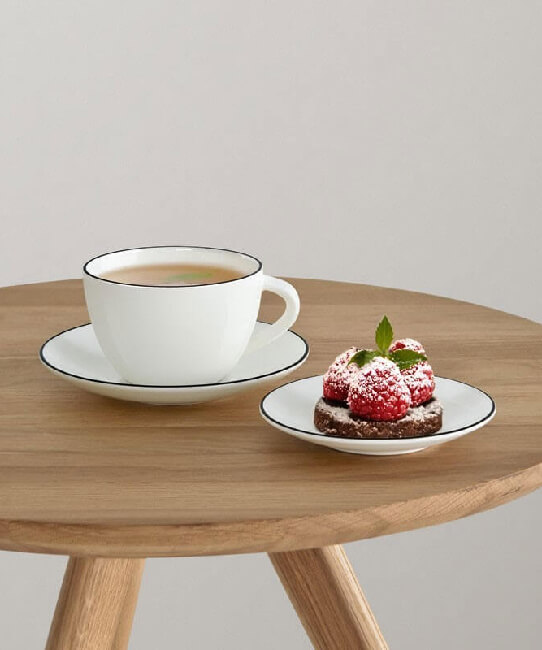Product successfully added to your shopping cart
There are 0 items in your cart. There is 1 item in your cart.
Last blog articles
A Musical Christmas: Classics and Jazz to Celebrate with the Family -
How to Cut Cheese and Create the Perfect Cheese Board for Your Christmas Table -
Celebrate and Offer - Christmas gift ideas -
Goodwill: The Magic of Christmas in Pieces That Tell Stories -
Hermann Bauer: Christmas Gifts with Tradition and Elegance -
Health benefits of coffee. Myth or true?
Published : 02/23/2021
Categories : Let yourself be Inspired

Some love it and some hate it, but one thing is right, coffee is considered the third most-consumed drink in the world (behind is only water and tea). In this article, we will help to demystify some questions that have appeared, over the years about this drink.
But first, let’s go back to its origin.
It was in 575 AD that Arabs discovered the potential of the coffee plant for preparing a drink. Although there are many stories, it is thought that it was a shepherd who discovered the properties of coffee, when his animals, after eating the coffee tree, became restless and without sleeping. Upon realizing this situation, the shepherd used the grains of the tree to make an infusion and offered it to monks and realized that they were also more awake.
The introduction of coffee in Europe, as we know it today, took place many years later, in 1645, with the opening of the first public cafe "Café Florian" in Venice. In Portugal, this introduction happened only during the XVIII century, but it was also during this period that the Portuguese took this plant to Brazil and transformed this country into the largest coffee producer in the world (until today).
The most commercialized species of coffee beans (seeds inside the coffee berries) are: Arabica (most popular and results in soft and aromatic coffee, with lower caffeine content) and Robusta (results in coffee a bit more “bitter” with higher caffeine content).

However, many questions arise, related to our health, since coffee is, nowadays, one of the main actors in the daily routine of most of the active population. This drink is consumed, on average, 2-4 times a day, usually intending to obtain energy, or just for social interaction.
Here we have 10 myths and truths about coffee consumption:
Is coffee bad for your health?
MYTH: In a general way drinking coffee on a regular and moderate basis (up to 4 cups per day, which equates to up to 400mg of caffeine per day) does not compromise health, in the case of most healthy adults. In contrast, it can bring some benefits to the person who consumes it.
Is decaffeinated healthier than coffee?
MYTH: Decaffeinated, for the majority of people, is not healthier than coffee, except caffeine levels, it contains the same composition. However, this drink becomes an option for pregnant women and people with sensitivity to caffeine, or who want to reduce the intake, allowing them to feel the flavor present in a normal coffee.
Drinking coffee at the end of the day, can cause insomnia?
TRUTH: In the case of drinking coffee at the end of the day/night, many consumers do not feel any effect on the quality of the sleep. However, it is true that it can cause insomnia to people more sensitive to caffeine.
Does drinking coffee give you energy and concentration?
TRUTH: Due to its high percentage of caffeine (an average of 75mg, in a cup of espresso), this drink has a stimulating effect, and for this reason, is preferably consumed in the morning, as a way to “boost” energy. The effects appear between 15 to 45 minutes after consumption and usually last for about four hours.
Is the best time to have coffee right after lunch?
MYTH: We should wait about 1 to 2 hours to drink coffee after lunch, as it is known that caffeine does not help the absorption of some nutrients, for example, iron.
Does drinking coffee help to prevent diabetes type 2?
TRUTH: Although this relation has not been sufficiently studied, there are already many studies that show that moderate consumption of coffee, daily, contributes to the control of sugar levels, as well as to the blood glucose balance, preventing this way up to 28% of diabetes, especially, type 2.
Does drinking coffee increase the risk of heart attacks?
MYTH: It is not proven that moderate coffee consumption is associated with an increased risk of cardiovascular problems (such as heart attacks, arrhythmia, hypertension or other pathologies).
Does drinking coffee help to prevent Alzheimer’s?
TRUTH: According to the Institute for Scientific Information on Coffee (ISIC), the moderate consumption of coffee prevents Alzheimer up to 20%, slowing down the deterioration of brain cells, especially those associated with memory.
Does drinking coffee help prevent cancer?
TRUTH: It is more and more proven that regular and moderate coffee consumption is not only not cancerous, but can also help prevent some types of cancer, such as colon, breast, skin and liver. However, you cannot drink it at more than 65ºC.
Is coffee addictive?
UNDEFINED: If, in your case, you drink coffee daily, breaking this habit may cause you temporary symptoms of caffeine withdrawal, such as headaches. However, some people do not have any symptoms. To avoid the appearance of unwanted symptoms just do a gradual reduction in caffeine consumption by choosing, for example, decaffeinated.
Like everything in life, the secret lies in moderation and common sense. Thus, the consumption of this drink is no exception.
It is important to note that this article is only informative and, for this reason, in case of doubts, it is always recommended to consult your doctor, for more information.
Above all, introduce “coffee breaks” into your routine, even if you don’t consume coffee, as they are essential for your mind and mood!
Warm Your Heart!



